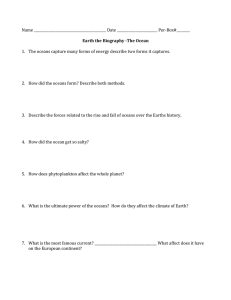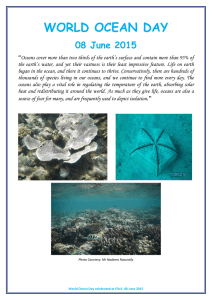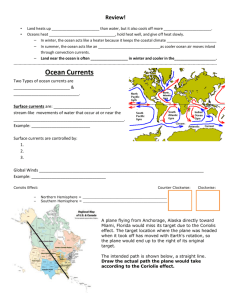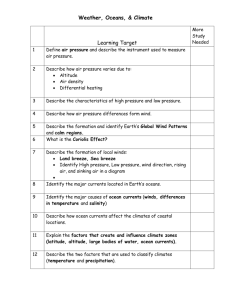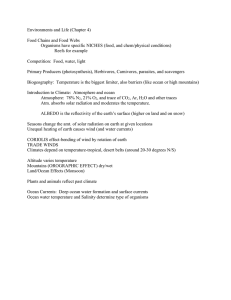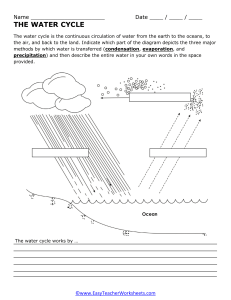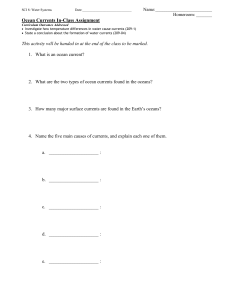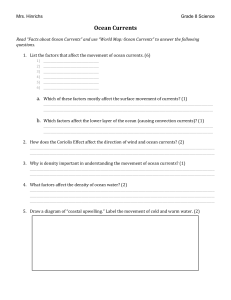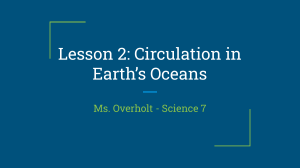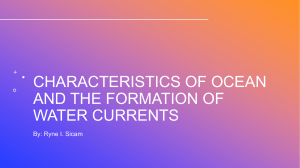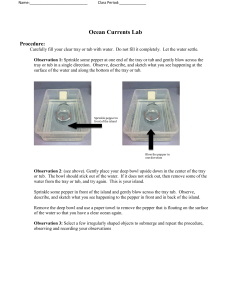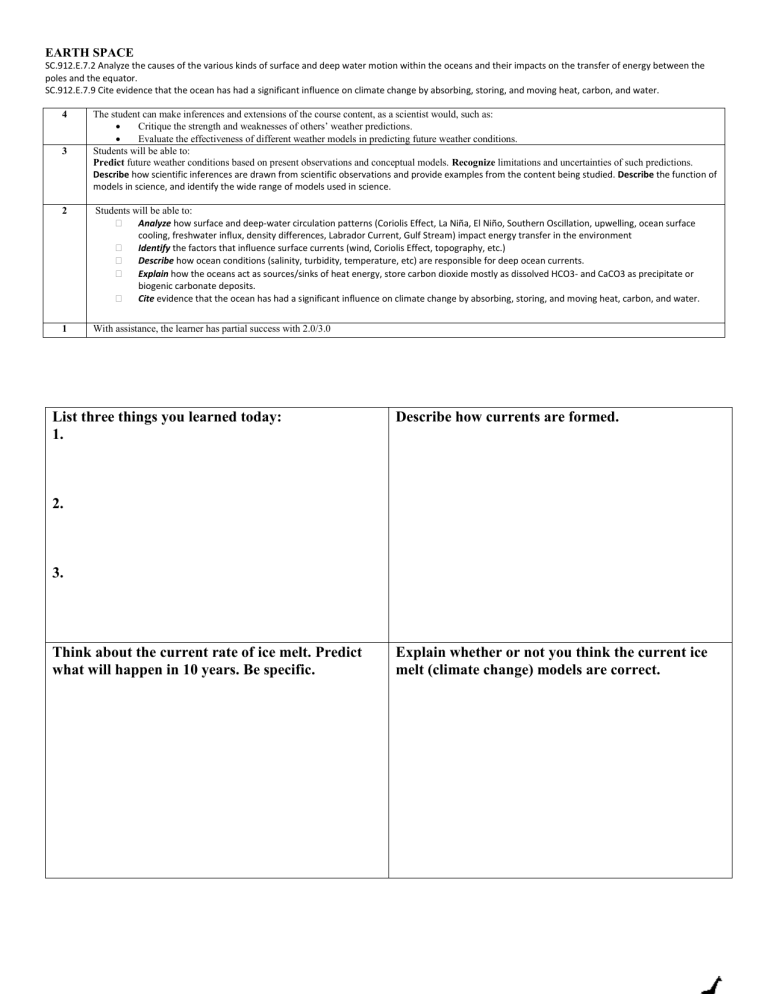
EARTH SPACE SC.912.E.7.2 Analyze the causes of the various kinds of surface and deep water motion within the oceans and their impacts on the transfer of energy between the poles and the equator. SC.912.E.7.9 Cite evidence that the ocean has had a significant influence on climate change by absorbing, storing, and moving heat, carbon, and water. 4 3 The student can make inferences and extensions of the course content, as a scientist would, such as: Critique the strength and weaknesses of others’ weather predictions. Evaluate the effectiveness of different weather models in predicting future weather conditions. Students will be able to: Predict future weather conditions based on present observations and conceptual models. Recognize limitations and uncertainties of such predictions. Describe how scientific inferences are drawn from scientific observations and provide examples from the content being studied. Describe the function of models in science, and identify the wide range of models used in science. 2 Students will be able to: Analyze how surface and deep-water circulation patterns (Coriolis Effect, La Niña, El Niño, Southern Oscillation, upwelling, ocean surface cooling, freshwater influx, density differences, Labrador Current, Gulf Stream) impact energy transfer in the environment Identify the factors that influence surface currents (wind, Coriolis Effect, topography, etc.) Describe how ocean conditions (salinity, turbidity, temperature, etc) are responsible for deep ocean currents. Explain how the oceans act as sources/sinks of heat energy, store carbon dioxide mostly as dissolved HCO3- and CaCO3 as precipitate or biogenic carbonate deposits. Cite evidence that the ocean has had a significant influence on climate change by absorbing, storing, and moving heat, carbon, and water. 1 With assistance, the learner has partial success with 2.0/3.0 List three things you learned today: 1. Describe how currents are formed. 2. 3. Think about the current rate of ice melt. Predict what will happen in 10 years. Be specific. Explain whether or not you think the current ice melt (climate change) models are correct.
